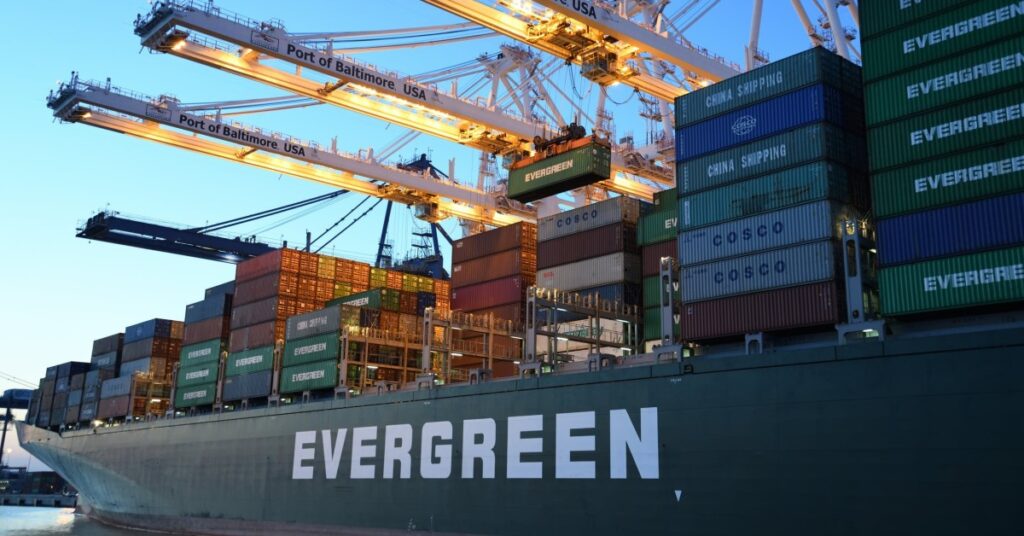
How Much Will You Make With a Master's in Business Analytics?
A master's in business analytics can help you land a [...]

Anyone who has taken even a cursory glance at their newsfeed recently knows that, for various reasons, supply chains are a hot topic. Anytime demand outstrips supply—as it has in the wake of the prolonged COVID pandemic—supply chains make news.
The complexity of moving goods and materials from one destination to another may also have people thinking that supply chain management is exceedingly difficult, which might discourage them from pursuing the career opportunities that a business degree in supply chain management offers. But is supply chain management (SCM) as difficult as it seems?
It’s not hard to see why people come to this conclusion. SCM staples like procurement and inventory management appear challenging even when they’re predominantly local endeavors. If you add globalization into the mix, the entire process can seem daunting.
However, supply chains are manageable. Perhaps more to the point, managing them is a science, one that methodical, organized, analytical people can master. For anyone who fits that description, the rewards from pursuing a master’s degree in supply chain management can be quite significant.
So, is supply chain management hard? This article covers that question and the following topics:
Unsurprisingly, there is no easy answer to the question. As with many things, it depends on your background and education, the skills you already possess and those you are capable of developing. All of this determines whether you will find supply chain management hard or will find success in this field.
Will you find supply chain management challenging? To answer this question, it helps to know something about the major issues that supply chain professionals encounter, such as:
Perhaps after going through this list you think, “I can’t handle all of that.” In which case, thanks for reading. Or you may have thought, “This is the text equivalent of looking in a mirror.” In which case, the sooner you take your first step towards your supply chain management degree, the better. Or perhaps you see something in it, but still wonder whether you’ll be able to gain the knowledge and skills you need to follow this particular career path.
You already may believe that you have what it takes for a job in SCM. You may consider yourself well-versed in such topics as logistics management, operations management, inventory management, project management, or warehouse management. (That’s a whole lot of management.)
But supply chain management is different because SCM is all of these things and more. A master’s in supply chain management can help you gain the sort of wide-angle perspective that is so crucial to true success in SCM. This is undoubtedly why close to half of all supply chain managers take the time to obtain their master’s.
To determine whether a master’s degree in SCM is what you need, you have to know what sort of topics are taught in such a degree program. Supply chain management coursework includes the following subjects:
So, the short answer to the question above is: an SCM master’s degree certainly can prepare you. However, because SCM involves so many different aspects of production, a master’s can lead to any number of supply chain jobs (purchasing manager, business analytics, operations research) instead of or on the way to becoming a supply chain manager.
Hopefully, by this point, your interest has been whetted enough to ask the most fundamental of questions…
An MBA in supply chain management is a standard degree in business administration tailored for those who want a career in SCM management. If you choose this option, you will need to find an MBA program that offers the SCM specialization (most do not, although that still leaves plenty of options among those that do). Also be aware that your foundation courses in leadership, marketing, finance, operations, communications, and analytics will likely be taught from a generalist perspective. They will not approach these subjects from an SCM point of view.
A Master of Science in SCM offers another option. In contrast to the MBA, the MS focuses more singularly on supply chain theory and practice. The MS offers a deeper dive into supply chain management, presenting fundamentals within the context of SCM issues and challenges. If your career goals include mastery of supply chain technology, finance, analytics, and planning, the MS may be the better option for you. You will emerge from the program with a deeper understanding of SCM than you would get from an MBA program.
Most supply chain management master’s degrees take two years to complete. You will have the choice of taking in-person classes, engaging in online programs, or a combination of the two. Some tracks operate on a compressed timeline. These typically require your full attention, leaving little time for anything else.
A four-year bachelor’s degree is a must, and you will need to submit an undergraduate transcript with a GPA of 3.0 or higher, letters of recommendation, a CV/resume, and a statement of purpose.
Beyond that, it depends on the school. Most expect you to submit recent GRE or GMAT scores unless you are already a seasoned professional (and it’s worth mentioning here that some programs only accept seasoned professionals). You also may be expected to satisfy certain work requirements.
Courses you’re likely to take in an SCM MBA program include the following (these are offered at Rutgers University):
The University of Tennessee-Knoxville‘s Master of Science in Global Supply Chain Management curriculum includes the following courses:
The UTK MS program is one of many of its type that require a capstone project to graduate.
While supply chain management work often implies a big picture view of the production process, you may find yourself in the course of your studies gravitating towards specific areas that better suit your skills. Any career in SCM is going to demand at least some knowledge of all of the main areas of study. If you find yourself being drawn towards one particular topic or another, you may choose to attempt to make a career by specializing in one of the many sub-topics within an SCM master’s.
Here are some of the SCM specialization areas:
Given the career potential for anyone with a SCM master’s, it isn’t surprising that the top business schools are eager to recruit more students for their programs. US News & World Report, lists the following SCM programs as the best in the US as of 2020:
So, is supply chain management hard? Perhaps that’s the wrong question. Such an all-encompassing subject is bound to be complicated, but for those with the right skills, the question ought to be: Is supply chain management worth the trouble? Given the host of career opportunities available with this degree, not to mention the demand for such skills that has arisen in the wake of the pandemic, it’s certainly a question worth exploring.
(Last Updated on February 26, 2024)
Questions or feedback? Email editor@noodle.com

A master's in business analytics can help you land a [...]

Channel marketers across the board earn good money. There are [...]

MBA programs impart knowledge and skills. Those skills will serve [...]

The expertise in data analytics you develop through a master's [...]

Full-time jobs for industrial engineers are plentiful. Professionals with certifications, [...]
Categorized as: Supply Chain Management, Business & Management